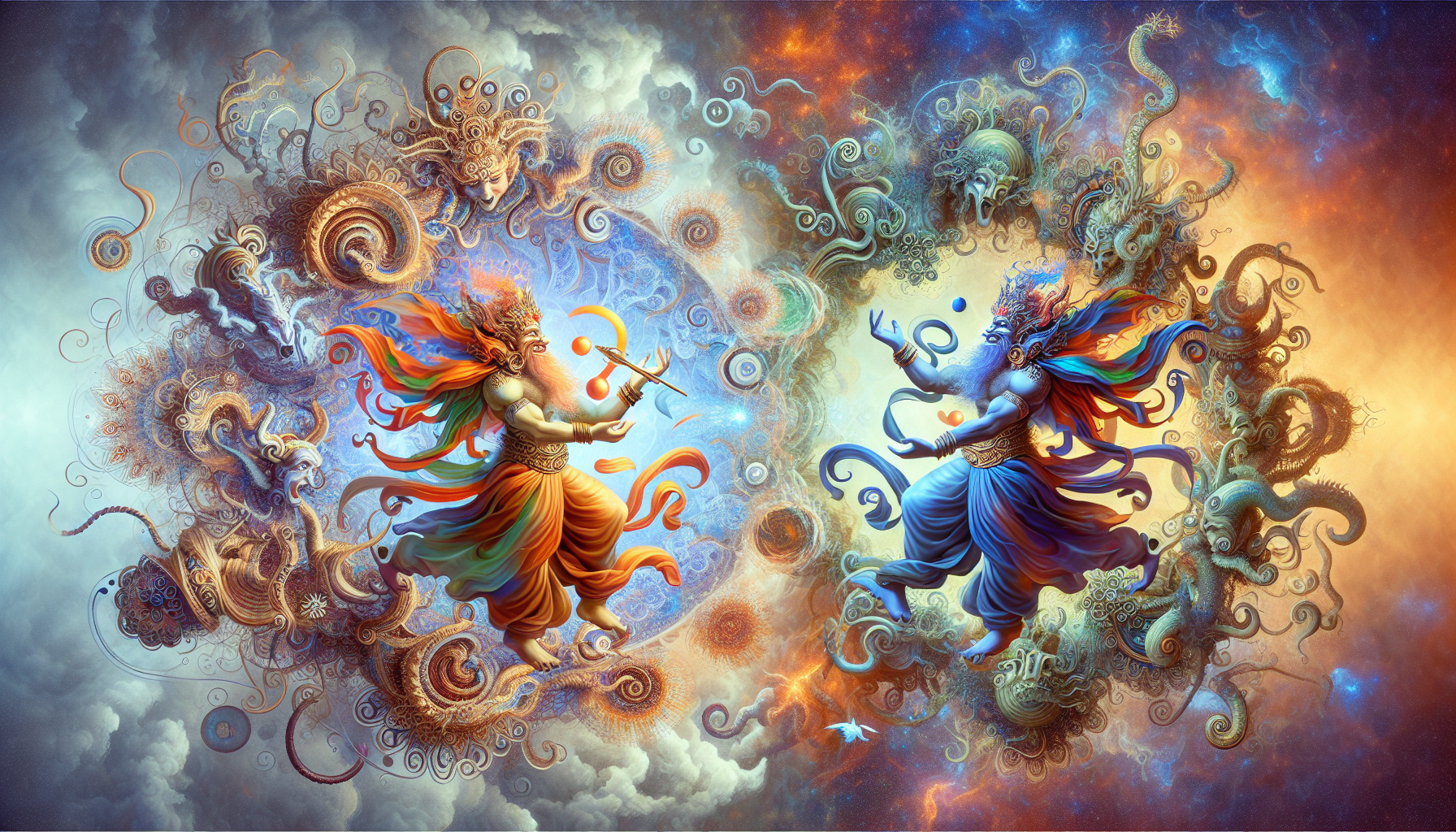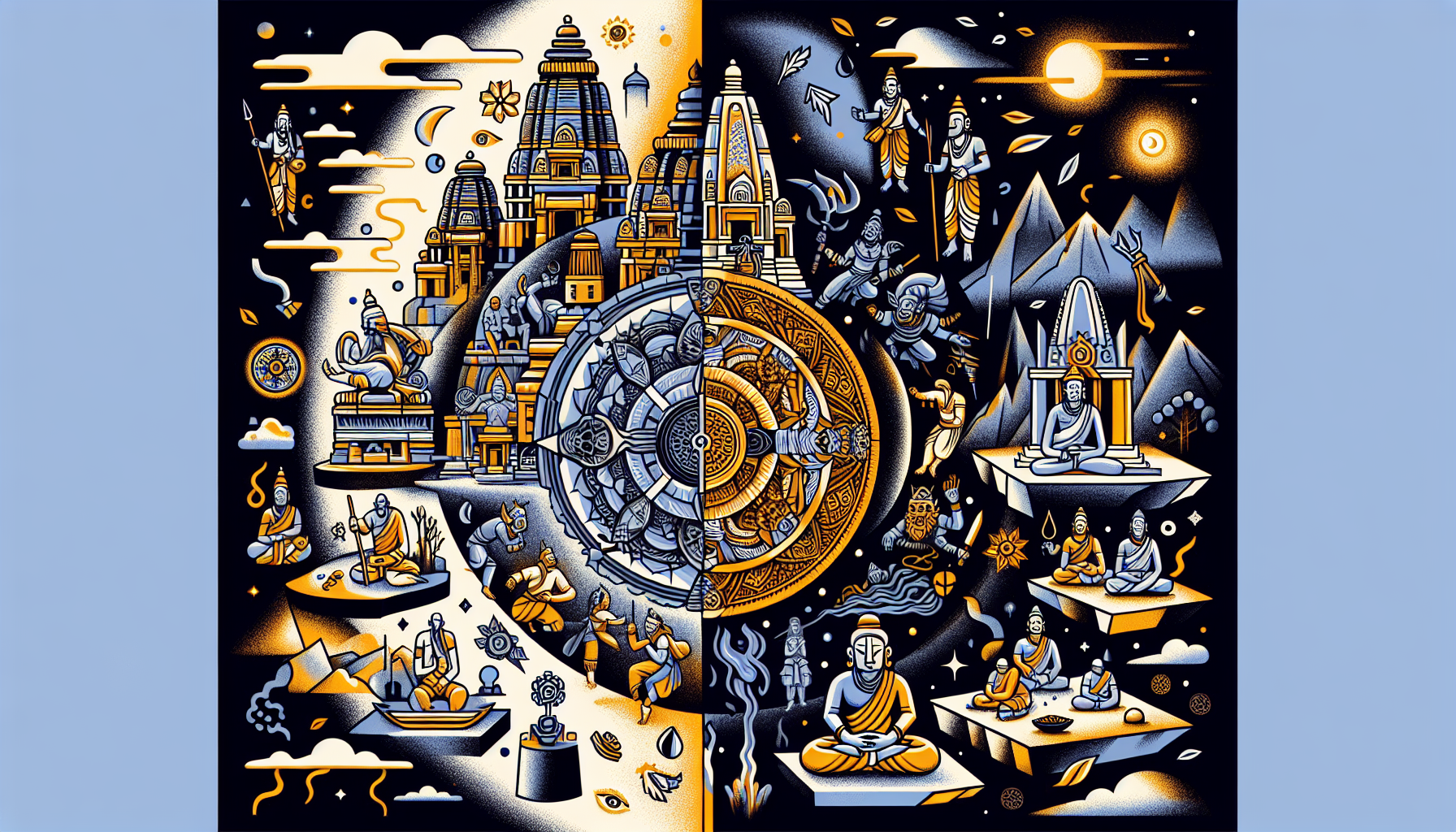Have you ever wondered if asuras, the supernatural beings from Hindu mythology, are good or bad? In this article, we will explore the contrasting narratives surrounding asuras and the debates among scholars and practitioners. By examining the diverse perspectives and interpretations, you’ll gain a deeper understanding of the complexities and moral ambiguity associated with these often misunderstood entities. So, join us on this mythical journey as we unravel the enigma of whether asuras are truly benevolent or malevolent beings.
Table of Contents
Origin of Asuras
Asuras hold a prominent role in Hindu mythology, portraying a complex and multifaceted existence. These divine beings have a rich history that dates back to ancient times. In Hindu mythology, the origin of the Asuras is often attributed to the antagonist side of the creation process. While Devas, the celestial gods, are associated with righteousness and order, the Asuras are often depicted as the opposing force, representing chaos and discord. This duality in their origins sets the stage for their intricate characterizations and their place in the Hindu mythological pantheon.
Different Asuras in Hindu mythology
Within Hindu mythology, numerous Asuras have been identified, each with their distinct stories and characteristics. One of the most renowned Asuras is Vritra, known for his role in hindering the flow of rivers and causing droughts. Another notable Asura is Hiranyakashipu, who obtains incredible powers through devotion but becomes consumed by his own ego. Ravana, the antagonist in the epic Ramayana, is also depicted as a powerful Asura who challenges the divine order. Lastly, Mahisasura, who possessed the ability to transform between human and buffalo forms, is a notable Asura with a significant impact on the Hindu mythological narrative.

Characteristics of Asuras
Asuras are described in Hindu mythology with distinct physical appearances and personality traits. Physically, they are often depicted with dark or blue skin, representing the realm of darkness. They are often portrayed as having a menacing presence, with sharp features and fierce expressions. In terms of personality, Asuras are known for their ambition, cunning, and desire for power. They are relentless in their pursuit of dominance and control, often guided by their inflated egos. These characteristics shape the Asuras and contribute to their complex roles within Hindu mythology.
Asuras in relation to Devas
The relationship between Asuras and Devas can be understood as one of opposing forces. Devas, representing cosmic order and righteousness, frequently find themselves at odds with the Asuras, symbolizing chaos and discord. These opposing forces play a crucial role in the perpetuation of balance in the cosmic cycle. Conflicts between the Devas and Asuras frequently arise due to their contrasting ideologies and desires for power and control. These conflicts serve as recurring themes within Hindu mythology, highlighting the eternal struggle between good and evil.

Asuras as Divine Beings
Although often associated with negative attributes, Asuras are not devoid of positive characteristics. Some Asuras, despite their natural inclinations, possess virtues that make them worthy of reverence and worship. They display qualities such as bravery, intelligence, and loyalty. Recognizing these positive attributes, humans have even worshipped certain Asuras, seeking their blessings and guidance. This duality showcases the multidimensional nature of Asuras as both divine and flawed beings.
Asuras as Demonic Beings
In contrast to the positive attributes Asuras may possess, they are often associated with evil in Hindu mythology. Some Asuras indulge in demonic acts, causing harm and chaos in their pursuit of power. Stories abound of Asuras inflicting suffering upon mortals, disrupting harmony, and waging war against the Devas. These tales serve as cautionary narratives, often portraying the Asuras as embodiments of malevolence and the consequences of unchecked ambition and arrogance.
The Dual Nature of Asuras
The portrayal of Asuras in Hindu mythology often embodies contradictory elements, further underscoring their complex nature. These divine beings possess both positive and negative attributes, making it challenging to label them definitively as good or bad. While they may succumb to their darker instincts at times, certain Asuras exhibit redeeming qualities, proving that they are capable of change and growth. This dual nature of the Asuras reflects the inherent complexity and shades of gray that exist within the human condition.
The Moral Dilemma
Interpreting the Asuras within the realm of morality is a subject of ongoing debate and contemplation. Their ambiguous nature raises questions about the nature of good and evil and the inherent complexities of human existence. Like humans, Asuras are capable of making choices that can lead to either virtuous or malevolent outcomes. This moral dilemma challenges the notion of clear-cut definitions of good and bad, forcing introspection and a deeper examination of the human psyche.
Lessons and Teachings from Asuras
The tales of Asuras offer valuable lessons and teachings that resonate with the human experience. Their ambition and determination serve as powerful reminders of the potential within each individual. Asuras also teach us the importance of facing our inner demons and not letting our ego distort our judgment. Their stories often illustrate the possibilities of redemption and transformation, highlighting the potential for personal growth and overcoming adversity. By embracing these lessons, we can navigate our own challenges and strive towards a balanced and fulfilling life.
Conclusion
The Asuras of Hindu mythology embody the multifaceted nature of existence. Their origins, characteristics, and roles within the narrative challenge oversimplified notions of good and evil. They serve as reminders that every being possesses the capacity for both darkness and light. The stories of the Asuras offer deep insights into the human condition and provide valuable lessons on ambition, self-reflection, and transformation. Ultimately, it is through exploring the complexities of these divine beings that we gain a deeper understanding of our own selves and the world around us.